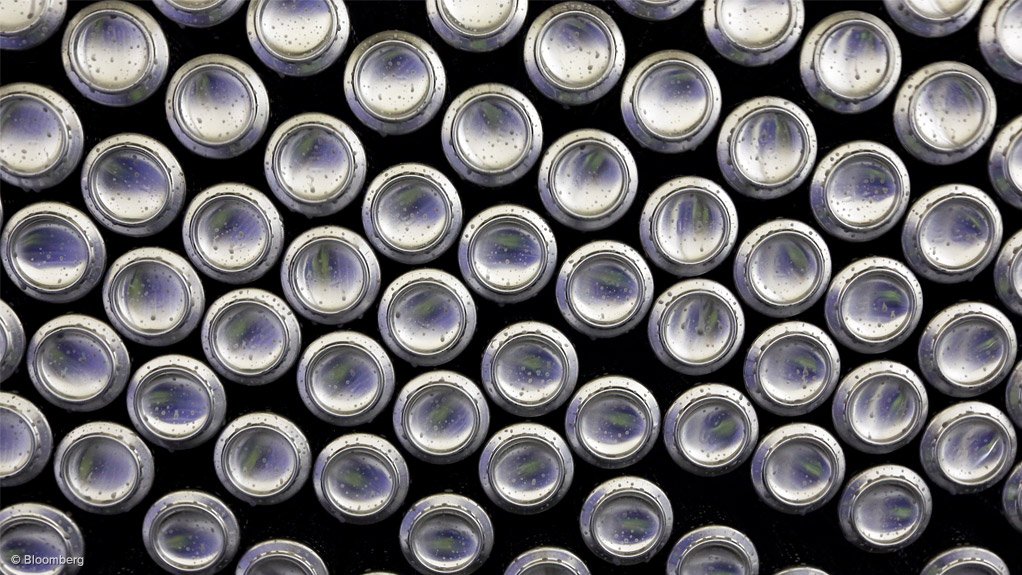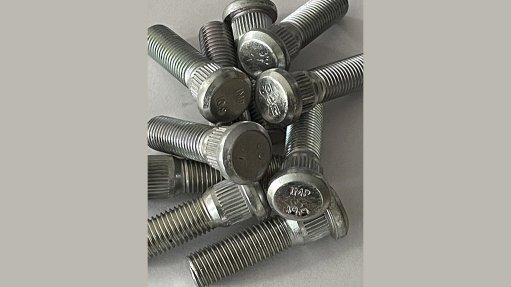Nampak to reduce salaries, headcount in 12-month rightsizing
JSE-listed packaging company Nampak has instituted a vacancy freeze, will reduce headcount across the entire organisation, will reduce its head office and has reduced absolute salaries to stabilise the company, Nampak interim CEO Phil Roux said on May 24.
This headcount reduction will be done in accordance with the rightsizing of the organisation to ensure it retains the appropriate competency set and will not be done all at once nor in a manner that is reckless, he added during a presentation of the company's results for the six months to March 31.
Nampak increased its revenue by 4% to R8.4-billion and its trading profit by 17% to R899-million. However, net impairment losses of R2.4-billion and net finance costs that increased by 77% to R494-million led to an operating loss of R2.1-billion for the interim period.
“Our working capital has a structural imbalance, and it is a priority effort from management to reverse this imbalance over the next six months; if not fully then to a greater extent,” he said.
“While we have had to make difficult decisions in the pursuit of a sustainable Nampak, we have the ingredients, capabilities and restructuring programme to craft a credible and compelling investment case as we take the company forward.”
The company will fix, sell or close operations as necessary to ensure a streamlined and competitive company within 12 months. Any number of assets may exit the company as part of its portfolio optimisation on the journey to sustainable growth, said Roux.
“A rigorous cost reduction programme, business remodelling and significant reduction in net working capital will be fundamental to our efforts in the short term. The divestiture programme requires increased impetus as a critical enabler to reducing our debt encumbrance to manageable levels,” he said.
“Nampak is a formidable business that is faced with unsustainable debt levels. Our strategic imperative is to focus on a new business model that aims to unlock value in the short to medium term with a glide path that is configured to be fit for growth. 2023 is a defining year for the group,” he added.
The company will also merge its Bevcan and Divfood businesses and will consolidate its head office and standardise its financial and administrative processes and systems across the group.
Additionally, Nampak is actively managing a sustained maintenance programme in the business to ensure the operating capacity of the business is not compromised and that assets are well looked after and maintained, said Nampak CFO Glenn Fullerton.
Nampak's net debt to earnings before interest, taxes, depreciation and amortisation (Ebitda) ratio was 2.9 times, which was well below its covenant threshold. Its Ebitda to interest cover ratio was 3.4 times, which was above the required covenant threshold.
The company's debt maturity dates were successfully renegotiated with lenders, with an extension being granted to June 30, 2024. This has improved the structure of the group’s balance sheet at the reporting date. Discussions are progressing with the group’s advisers and lenders regarding the refinancing and an appropriate future debt and equity structure.
Further, the company will pursue a rights offer and the required minimum rights offer has been reduced to R1-billion. The rights offer will enable management to further reduce the company’s debt, resulting in a more appropriate capital structure, he noted.
Nampak will convene an extraordinary general meeting in respect of which a circular will be published on or about May 31. All relevant authorisations will be sought to enable the company to conclude the process.
Operating profit before net impairment losses declined by 62% to R259-million primarily owing to significant foreign exchange losses in Nigeria of R531-million and Angola of R40-million. The operating profit was adversely impacted by devaluation losses of R571-million in Angola and Nigeria arising from exchange rate movements, net impairment losses and net finance costs.
Group trading margins increased to 10.7% from 9.5% achieved in the 2022 interim period, while the operating margin decreased to 3.1% from 8.4%, primarily owing to significant foreign exchange losses in Nigeria and Angola, and the losses in DivFood and Rigid Plastic divisions.
The group continues to manage overheads in an inflationary environment. The opportunity for further enhanced cost-cutting measures exists within the scope of the restructuring plan, Roux highlighted.
The Nampak board decided not to declare an interim dividend for 2023, which is aligned with the requirements of Nampak’s funding agreements and the objective to actively reduce net interest-bearing debt.
Further, Bevcan has remained the company's crown jewel. Revenue growth was enabled by increased volumes in Bevcan South Africa and improving volumes in Angola, partially offset by significant volume reductions in Bevcan Nigeria and DivFood. The Rest of Africa’s market volumes were stable, said Roux.
The Metals division increased revenue by 7% and the Paper division increased revenue by 3% while the Plastic division's revenue declined by 4%.
Bevcan Nigeria, DivFood and Rigid Plastics incurred operating losses compared to an operating profit in the first half of the 2022 financial year, the combined effects of which contributed to a R340-million reduction in operating profit.
Further, Nampak realised a loss for the period of R2.4-billion, or 396.6c a share, which is down from earnings a share of 34.9c during the six months to end March 2022. The company also saw a headline loss of R342-million, or 54.5c a share, compared to headline earnings a share of 35.6c during the prior financial year's interim period.
Cash generated from operations before working capital changes declined by 45% to R591-million from R1.08-billion in the 2022 interim period. Cash generated from operations declined by 92% to R21-million, down from R267-million in the comparable prior half-year period. Cash used in operations decreased by 30% to R570-million. Net cash used in operating activities increased to R513-million from R91-million in the 2022 financial year interim period.
REGIONAL RESULTS
Bevcan South Africa has been successful in growing its volumes in the period under review driven by a consumer preference for large cans in the energy drink and beer markets. An opportunity exists to upgrade the beverage can lines to harness growth in these market segments.
Nampak's Plastic and Paper division in South Africa is yielding mixed fortunes and there are options to carve out an optimal portfolio.
Further, green shoots are re-appearing in Angola as volumes have improved after a period of contraction.
In contrast, its business in Nigeria experienced worsening economic conditions including a sharp increase in inflation levels, foreign currency illiquidity, higher interest rates and a shortage of bank notes. These factors, together with the need to increase prices to recover higher import costs, caused a decline in volumes.
“The contracting South African economy, the reducing consumer disposable income, the heightened competitor activity and the very difficult trading conditions in Nigeria represent key performance inhibitors that continue to impact demand and affect the group’s volumes. Our immediate strategic imperative is to urgently implement an optimal portfolio structure to take advantage of market opportunities and minimise the negative impact of these macroeconomic indicators.
“Loadshedding is, by all accounts, set to intensify in South Africa over the medium to long term and will impact our business to varying degrees. Our leadership is continuously responding to the manufacturing disruptions and the impacts in different geographies brought about by power supply interruptions,” highlighted Roux.
OUTLOOK
Bevcan in South Africa continues to enhance its operational efficiency and execute disciplined maintenance scheduling for existing equipment. The Springs Line 2 expansion for 500 ml cans is expected to be funded from cash generated from operations in response to market opportunities. Trading term reviews, revenue growth management, cost reduction and extracting efficiencies are the focus areas to return DivFood to profitability
In the Rest of Africa, green shoots of volume recovery, improving macroeconomic indicators and filling opportunities represent exciting opportunities for the trading relationships with its key customers.
Further, in general metal packaging, the company's operations in Zimbabwe are expected to sustain robust demand. Production volumes will continue to depend on the availability of electricity and foreign exchange required to procure raw materials while the operations are expected to continue self-funding.
Additionally, the sale of traditional beer in bulk is adversely impacting the demand for conical cartons. Nampak Zambia is working with regulators to address the lack of enforcement of regulations related to the sale of beer in bulk. However, demand for Zambia’s other products is healthy and anticipated to remain strong as the business continues to generate healthy returns.
Meanwhile, in Malawi, the group still foresees the conical cartons for sorghum beer continuing to regain pack share of the market, building on collaboration initiatives with its main customer.
“We will reassess our offshore structures to determine whether they are relevant and compelling enough to retain as we take the organisation forward,” said Roux.
Article Enquiry
Email Article
Save Article
Feedback
To advertise email advertising@creamermedia.co.za or click here
Press Office
Announcements
What's On
Subscribe to improve your user experience...
Option 1 (equivalent of R125 a month):
Receive a weekly copy of Creamer Media's Engineering News & Mining Weekly magazine
(print copy for those in South Africa and e-magazine for those outside of South Africa)
Receive daily email newsletters
Access to full search results
Access archive of magazine back copies
Access to Projects in Progress
Access to ONE Research Report of your choice in PDF format
Option 2 (equivalent of R375 a month):
All benefits from Option 1
PLUS
Access to Creamer Media's Research Channel Africa for ALL Research Reports, in PDF format, on various industrial and mining sectors
including Electricity; Water; Energy Transition; Hydrogen; Roads, Rail and Ports; Coal; Gold; Platinum; Battery Metals; etc.
Already a subscriber?
Forgotten your password?
Receive weekly copy of Creamer Media's Engineering News & Mining Weekly magazine (print copy for those in South Africa and e-magazine for those outside of South Africa)
➕
Recieve daily email newsletters
➕
Access to full search results
➕
Access archive of magazine back copies
➕
Access to Projects in Progress
➕
Access to ONE Research Report of your choice in PDF format
RESEARCH CHANNEL AFRICA
R4500 (equivalent of R375 a month)
SUBSCRIBEAll benefits from Option 1
➕
Access to Creamer Media's Research Channel Africa for ALL Research Reports on various industrial and mining sectors, in PDF format, including on:
Electricity
➕
Water
➕
Energy Transition
➕
Hydrogen
➕
Roads, Rail and Ports
➕
Coal
➕
Gold
➕
Platinum
➕
Battery Metals
➕
etc.
Receive all benefits from Option 1 or Option 2 delivered to numerous people at your company
➕
Multiple User names and Passwords for simultaneous log-ins
➕
Intranet integration access to all in your organisation




















